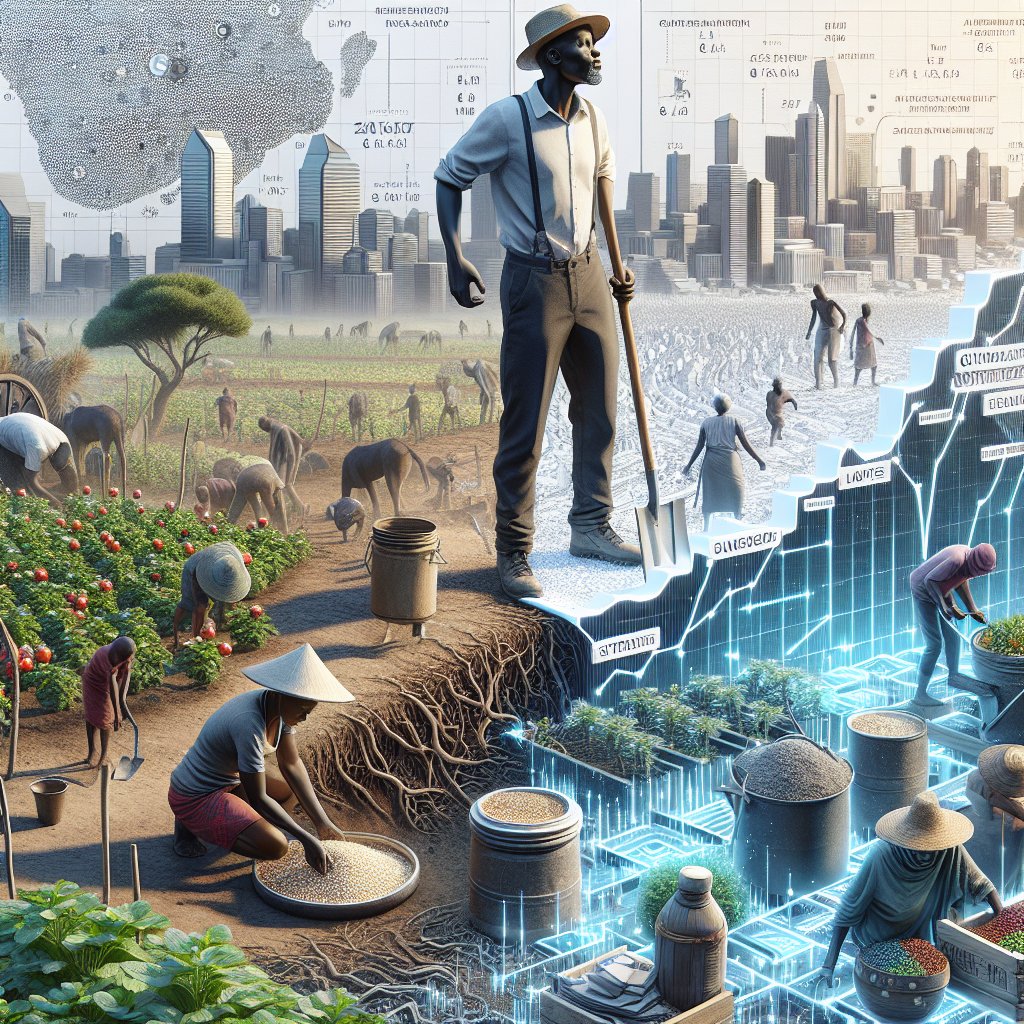Image created by AI
Guerrilla Gardening Emerges as a Beacon of Hope in South Africa's Battle Against Rural Hunger
The stark reality of extreme poverty, as the United Nations outlines, with severe deprivation of essentials like food and safe drinking water, is most pronounced in rural areas. Recent studies, such as that of the University of Johannesburg, highlight the disparities, painting a bleak picture where rural regions in South Africa see poverty rates over twice that of urban areas. Statistics show a harsh headcount ratio: 81.3% in the rural realm compared to 40% in city zones.
Subsistence for farmworkers is further compromised by wage concerns. South Africa's daily minimum wage for farm laborers, as per payscale.com, stands at a meager R21.18. However, reports from Robertson, Western Cape, reveal instances of remuneration slipping below even this low benchmark.
Deneco Dube, joint general secretary of the Commercial, Stevedoring, Agricultural and Allied Workers Union, underscores the national scope of these tribulations. Issues range from neglect towards occupational health and safety legislation to inadequate responses from the Department of Labour in enforcing compliance. Behind these systemic issues, real lives are affected; workers battle against unpaid wages, unjust dismissals, and basic utilities being cut.
In tackling the hunger crisis, non-profit organizations like SA Harvest emphasize the stark reality wherein an estimated 30% of South Africans go hungry every night. This struggle of empty stomachs is more acute within rural precincts, where the fabric of community support is threadbare.
Activists like Denia Jansen, connected with the Trust for Community Outreach and Education (TCOE), have criticized government budget allocations, calling for a redirection towards a "one woman, one hectare" initiative targeting rural women, who often bear the brunt of food scarcity. Jansen lifts the veil on the dire resource imbalance between urban and rural support networks.
Examples of empowerment come through guerrilla gardens and seed savers—individuals deeply embedded within their communities, striving to cultivate food sovereignty. Sheriff Ramoabi and Elsie Sauls epitomize this grassroots resistance—Ramoabi tending to unleased lands fervently, Sauls preserving seeds and distributing them to reinforce the local food systems.
The narrative of these guerrilla gardens and seed savers is not just one of agriculture but a defiance against systemic poverty and negligence. It's a myriad of small, potent acts of survival and transformation, carving out spaces of hope and sustenance in a landscape scarred by indigence.










